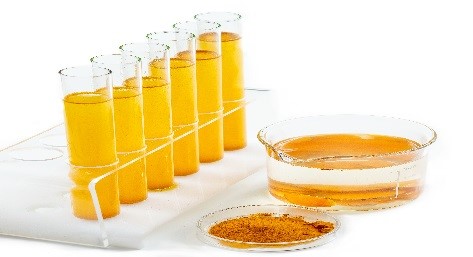Hyperlipidemia usually includes cholesterol and triglycerides. Cholesterol is divided into high density (high-density lipoprotein (HDL) cholesterol, or good cholesterol) and low density (low-density lipoprotein (LDL) cholesterol, o bad cholesterol).
HDL cholesterol can prevent cardiovascular and cerebrovascular diseases, which LDL cholesterol, also known as bad cholesterol, causes deposits in vascular wall which makes them hard and narrow.
- Cholesterol should be less than 200 mg/dl
- Triglyceride should be lower than 190 mg/dl
- LDL should be less than 130 mg/dl
- HDL should be higher than 35 mg/dl
Stay Away from Hyperlipidemia
Maintaining the ideal body weight with appropriate exercise can promote the body's metabolic rate, increase blood circulation, reduce weight and prevent hardening of arteries.
Cultivate good habits, avoid smoking (nicotine, carbon monoxide and other substances in tobacco products can damage the artery wall, attract cholesterol to the injured site, cause fat accumulation, and endanger the artery and heart) and drinking, and cut back on dinner parties. Hypolipidemic agents can slow down the process of arteriosclerosis and reduce the incidence of cardiovascular disease.
Patients should follow the instructions of their physician to take medicine regularly and receive blood lipid and liver function tests to trace the effect and side effects of hypolipidemic agents. Control hypertension and maintain normal blood pressure; control diabetes and maintain the ideal blood sugar level.
- Eat less deep-fried, fried or crisp food such as pig skin, chicken skin, duck skin, fish skin. Eat less nuts, such as peanuts, pistachios, cashews, walnuts, pine nuts, sesame seeds, Guazi.
- Choose skim milk and its products.
- When stir-frying vegetables, choose fat with high monounsaturated fatty acid, such as peanut oil, rapeseed oil, and olive oil. When cooking, use steamed, boiled, cold mix, roast, burn, stew, brine and other ways.
- It is advisable to eat more fiber-rich foods, such as brown rice, germ, oats, vegetables and fruits.
- Avoid eating refined sweets, products containing sucrose or fructose, all kinds of sweets or confectionery, canned fruits and other sweetened products and pure sugar products (e.g. honey, granulated sugar).
- Make lifestyle changes, such as quitting smoking, exercising, and drinking less (alcohol increases triglyceride synthesis).
|
|
High-cholesterol foods
|
High-fat foods
|
|
Egg
|
Eggs, duck eggs, goose eggs, egg yolk
|
|
|
Meat
|
Chicken liver, chicken gizzard, chicken heart, pig kidney, pig brain, pig heart, beef heart, sheep heart, pig liver, beef liver,
sheep liver, pig pancreas, bovine pancreas, sheep pancreas
|
Beef, pig brain, small intestine
|
|
Seafood
|
Roe, crab roe, shrimp roe, (dried) squid, clams
|
|
|
Grains and root vegetables
|
|
Milk butter bun, instant noodles
|
|
Milk
|
|
Full-fat milk
|
|
Fat and oil
|
|
Peanut butter and bacon
|
|
Fruit
|
|
Avocado, coconut flesh
|


